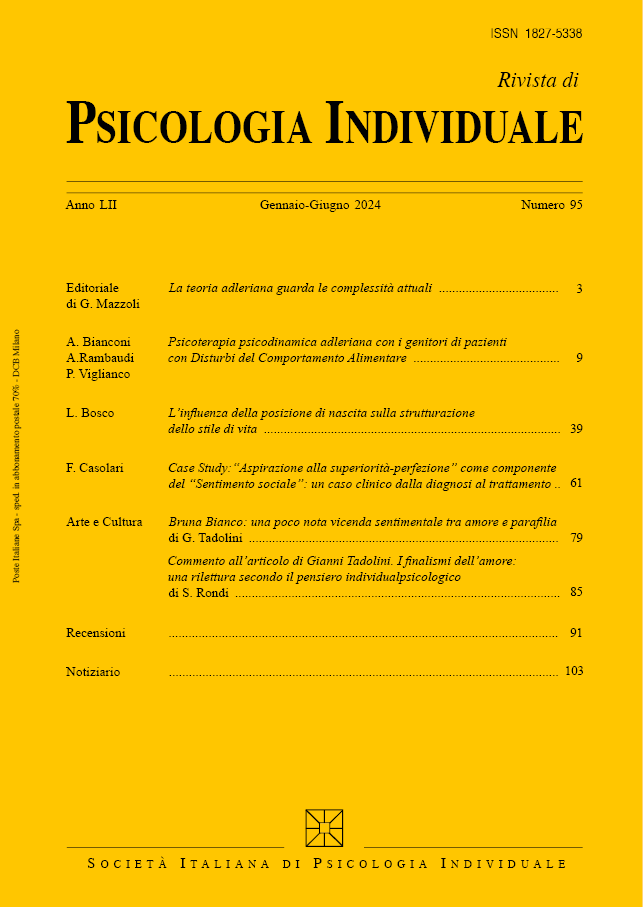FROM ADLER’S LANGUAGE OF ORGANS TO THE NEW PSYCHOSOMATIC MEDICINE PER SE
Keywords:
biopychosocial (BPS) model, organs language, psychosomatic, linguaggio degli organi, modello biopsicosociale, psicosomatica, inferiorità d'organo, compensazione, stress, personalità, relazione terapeutica, resistenza, competenza psicoterapeuticaAbstract
Adler’s theorizations foresaw the recent development of psychosomatic medicine: organ inferiority, psychic compensation, organs’ language are essentially psychosomatic concepts and predict the rise of the biopsychosocial (BPS) model in clinical and basic research. The BPS model showed that, together with biological factors, psychosocial ones can be evidenced as causes, co-factors or consequences of many illnesses. The allostatic load, defense mechanisms and personality profile predict the response to different stressors. Neural processes, underlying these mechanisms, interact with the biological substrate of somatic illnesses. Recent advancements in brain imaging on neurobiological and behavioral interactions of empathy and alexithymia support the crucial role of the (psycho) therapeutic relationship in the medical practice as a whole. Because all these aspects influence the duration of illness and the quality of life– both for the person/patient and their family– the economic consequences of this psychosomatic approach are important in general and speciality medicine. To keep up its ethics and to be appropriate, current medicine will growingly become an integrated science. It’s therefore necessary to reconsider the doctor-patient relationship as a psychotherapeutic process






